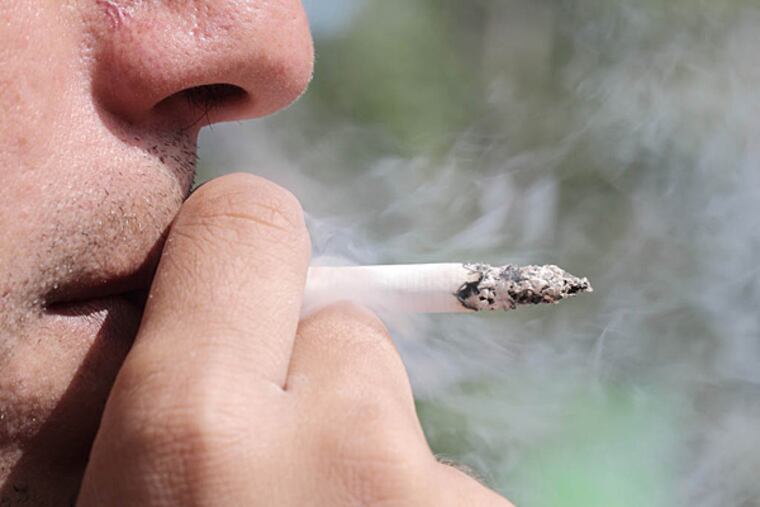Philly’s confusing message on harm reduction: OK with overdose prevention sites; banning smoking from rehab centers? | Opinion
If the city is willing to allow overdose prevention sites, why are cigarettes a problem? Isn’t it all about the drug user’s right to choose?

Having spent many years working in the behavioral health field and many years prior to that living as a person actively using drugs, I know firsthand the significant struggles people must overcome to begin the journey of recovery.
Among other things, there must first be an internal acknowledgment that their substance use is problematic and something they want to change. Then action steps must be taken, whether that is to enter into a treatment center, take medications, or even cutting back — everyone’s road to wellness is different. Everyone deserves the right the choose that path.
Advocates across the county and in Philadelphia have been fighting for people to have a choice in recovery. That’s why I was disappointed to learn that the 80 inpatient drug treatment programs that receive city funds will ban smoking at their facilities. Patients will be offered smoking cessation classes and medications, but will be not allowed to smoke while in treatment. I don’t think it’s fair that people don’t get to make a choice about whether or not to smoke.
Since overdose rates have reached epidemic levels, Pennsylvania has made leaps and bounds in removing barriers to treatment. Gov. Tom Wolf expanded Medicaid, in turn giving hundreds of thousands of people access to health care. The state declared a disaster around opioids, paving the way for some of the most troublesome barriers to be removed. These include removing prior insurance authorization for medications used to treat people with opioid use disorders and waving the fee for people seeking to obtain a birth certificate. The city of Philadelphia also waived another troublesome barrier in 2018 by eliminating the need for photo identification to enter treatment. With our city and state having made much progress over the past couple of years, adding a new barrier for people seeking treatment in 2019 seems counterproductive.
In recent years, Philly officials have embraced the concept of harm reduction, practical strategies aimed at reducing negative consequences associated with drug use. Harm reduction embraces a “meeting a person where they are at but not leaving them there” attitude. Under this thinking, in Philadelphia, we have rightly told people who use drugs that if they don’t want to stop using drugs, that’s OK — but we have given them clean needles to help prevent the spread of such diseases as hepatitis C. The most clear example of Philly’s harm reduction mentality came last January when Mayor Jim Kenney and other city officials announced that they’d be open to allowing a safe injection site, where addicted people can go to safely consume drugs in a supervised manner.
If the city is willing to OK overdose prevention sites, why are cigarettes a problem? Isn’t it all about the drug user’s right to choose?
I think the city is making great progress in addressing the opioid epidemic. It was an honor to serve on the Mayor’s Task Force to Combat the Opioid Epidemic, but I oppose the ban on cigarettes in city-funded rehab facilities. It strips people of choice and there is a great chance people will be harmed by this policy.
Is cigarette smoking an issue we should address? Absolutely, yes. But this should be done in addiction treatment through engaging people and offering education, nicotine replacement therapy options, smoking cessation resources, and support around individuals goals for quitting — not forcing people to stop smoking or else be barred from inpatient treatment. During a time of declared disaster and unprecedented overdose deaths, the city should be looking to continue removing barriers to treatment — not adding to them.
Devin Reaves, MSW, is executive director of the Pennsylvania Harm Reduction Coalition. @Devin_Reaves